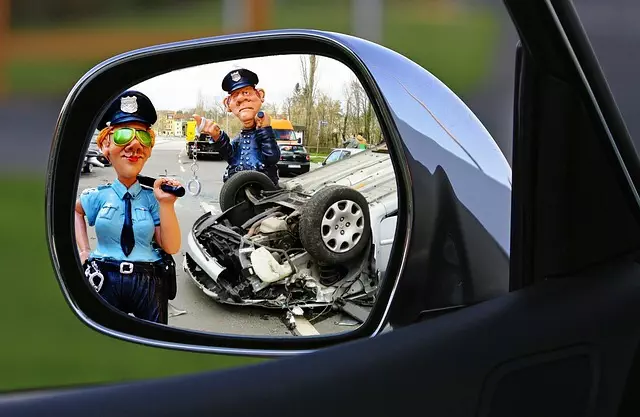Motorcycle accidents in Brooklyn, often linked to alcohol consumption, pose significant risks, especially traumatic brain injuries (TBI). New York City's brain and injury law plays a crucial role in holding accountable drunk drivers and providing compensation to victims. These laws protect individuals harmed by impaired driving, covering medical bills, rehabilitation, and pain and suffering. After an accident, immediate medical attention and consultation with a specialized lawyer are essential steps. To prevent such accidents, both riders and the community should promote responsible drinking, designated drivers, ride-sharing, stricter DUI laws, and awareness campaigns.
In Brooklyn, alcohol-related motorcycle accidents are a growing concern, posing significant risks to motorcyclists and impacting their safety. This article delves into the multifaceted issue, exploring the effects of alcohol on rider behavior and road dynamics. We examine brain injuries, which are particularly prevalent in such crashes, and analyze New York City’s personal injury laws pertaining to these incidents. Additionally, we offer strategies for prevention and guidance on navigating legal systems post-accident, focusing on brain and injury law in NYC.
- Understanding Motorcycle Accidents in Brooklyn: A Growing Concern
- The Impact of Alcohol on Motorcyclist Safety
- Brain Injuries: Unveiling the Risks for Motorcyclists in NYC
- Legal Aspects: Alcohol-Related Crashes and Personal Injury Law
- Navigating the Legal System After a Motorcycle Accident in Brooklyn
- Prevention Strategies: Reducing Alcohol-Involved Motorcycle Collisions
Understanding Motorcycle Accidents in Brooklyn: A Growing Concern

Motorcycle accidents in Brooklyn have become a growing concern, with a significant number involving alcohol. These incidents often result in severe injuries or even fatalities due to the inherent vulnerability of riders compared to passengers in cars. Understanding this trend is essential to addressing a pressing public safety issue. Many motorcyclists, despite adhering to traffic rules, face increased risks on Brooklyn’s roads when drunk drivers are involved.
In New York City, brain and injury law plays a crucial role in holding accountable those who operate vehicles under the influence of alcohol. The consequences of such accidents can be devastating for riders, leading to long-term disabilities or medical bills that can change lives. Therefore, it is imperative for both riders and the community to remain vigilant, promote responsible drinking, and ensure that drivers understand the dangers of operating a vehicle while impaired.
The Impact of Alcohol on Motorcyclist Safety

Alcohol significantly impairs motorcyclists’ coordination, reaction time, and judgment, making them three times more likely to be involved in an accident compared to sober riders. This risk is even higher in New York City, where brain injury law firms often see cases involving alcohol-impaired driving. The effects of alcohol on the body, particularly the central nervous system, lead to reduced coordination and slowed reaction times, making it difficult for motorcyclists to maintain control or react swiftly to unexpected road conditions. These impairments can be devastating, especially in high-speed environments like Brooklyn’s bustling streets.
In New York City, where navigating dense traffic is already a challenge, the presence of alcohol significantly escalates these risks. Brain injury law practitioners in NYC often handle cases that highlight the tragic consequences of combining speed and intoxication. Motorcyclists injured in such accidents may face long-term cognitive, physical, or sensory impairments due to traumatic brain injuries (TBI). These injuries can have a profound impact on their quality of life, necessitating extensive medical care, rehabilitation, and legal support from firms specializing in brain injury law.
Brain Injuries: Unveiling the Risks for Motorcyclists in NYC

Motorcycle accidents in Brooklyn, often involving alcohol, can have severe consequences for riders, with brain injuries being a significant concern. New York City’s bustling streets and highways see an alarming number of such incidents each year. When motorcyclists are involved in collisions with intoxicated drivers, the risk of traumatic brain injuries (TBI) increases dramatically.
Brain injuries in NYC are complex legal matters due to their potential for life-altering effects. Motorcyclists who sustain TBIs may experience a range of symptoms, from mild cognitive impairments to permanent disabilities. With prompt medical attention and legal counsel specializing in brain injury law, victims can navigate the complexities of personal injury claims and seek fair compensation for their injuries and associated costs.
Legal Aspects: Alcohol-Related Crashes and Personal Injury Law

In New York City, including Brooklyn, alcohol-related motorcycle accidents fall under the jurisdiction of personal injury laws, specifically those addressing brain and injury cases. These legal aspects are crucial in ensuring accountability and compensation for victims. When a driver operates a vehicle while impaired by alcohol, they risk not only their own safety but also that of others on the road, including motorcyclists.
In Brooklyn and throughout New York City, brain and injury law is designed to protect individuals who suffer physical and cognitive harm due to another’s negligence. In the context of motorcycle accidents caused by drunk driving, this legislation plays a vital role in holding accountable those responsible for the harm inflicted. It enables victims to seek fair compensation for their medical expenses, rehabilitation costs, and pain and suffering.
Navigating the Legal System After a Motorcycle Accident in Brooklyn

After a motorcycle accident in Brooklyn, navigating the legal system can be complex, especially when alcohol is involved. If you’ve suffered injuries due to a drunk driver, it’s crucial to understand your rights and options under New York City’s laws. The first step is to seek medical attention immediately; documenting your injuries is vital for any potential insurance claims or legal actions.
In New York City, brain and injury law plays a significant role in such cases. You’ll likely need to consult with an experienced lawyer who specializes in motorcycle accidents and has a proven track record. They can guide you through the process of filing a personal injury lawsuit against the at-fault driver, ensuring your rights are protected. This may involve gathering evidence, dealing with insurance companies, and potentially negotiating a settlement or taking the case to trial.
Prevention Strategies: Reducing Alcohol-Involved Motorcycle Collisions

Preventing alcohol-related motorcycle accidents in Brooklyn is a multifaceted approach that involves both individual responsibility and community efforts. Motorcyclists, like all drivers, should never operate a vehicle under the influence of alcohol or drugs. In New York City, where brain and injury law plays a critical role, it’s essential to understand the severe consequences of impaired riding. Awareness campaigns can educate riders about the risks and promote responsible behavior.
Moreover, designated driver programs and ride-sharing services can encourage safe alternatives to driving while intoxicated. Enforcing stricter laws and increasing penalties for DUI offenses can also act as a deterrent. Additionally, community initiatives that promote motorcycle safety and emphasize the importance of sober riding can contribute to reducing collisions and saving lives.
Alcohol-related motorcycle accidents in Brooklyn are a pressing issue, with severe consequences including brain injuries. This article has explored the multifaceted aspects of these crashes, from the safety implications of alcohol consumption for motorcyclists to the legal protections available under New York City’s personal injury laws. By understanding the risks and navigating the legal system effectively, individuals can take proactive steps to reduce these accidents and protect themselves in the event of an incident. Prevention strategies are key to ensuring safer roads for all users, especially given the heightened vulnerability of motorcyclists.
